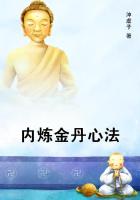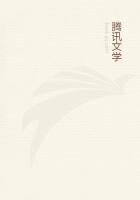Disappointed and fatigued,we would willingly have profited by the advantage of being near water,and have halted to refresh.But on consultation,it was found,that unless we reached in an hour the rivers we had so lately passed,it would be impossible,on account of the tide,to cross to our baggage,in which case we should be without food until evening.We therefore pushed back,and by dint of alternately running and walking,arrived at the fords,time enough to pass with ease and safety.So excessive,however,had been our efforts,and so laborious our progress,that several of the soldiers,in the course of the last two miles,gave up,and confessed themselves unable to proceed farther.All that I could do for these poor fellows,was to order their comrades to carry their muskets,and to leave with them a small party of those men who were least exhausted,to assist them and hurry them on.In three quarters of an hour after we had crossed the water,they arrived at it,just time enough to effect a passage.
The necessity of repose,joined to the succeeding heat of the day,induced us to prolong our halt until four o'clock in the afternoon,when we recommenced our operations on the opposite side of the north arm to that we had acted upon in the morning.Our march ended at sunset,without our seeing a single native.We had passed through the country which the discoverers of Botany Bay extol as 'some of the finest meadows in the world.'These meadows,instead of grass,are covered with high coarse rushes,growing in a rotten spongy bog,into which we were plunged knee-deep at every step.
[The words which are quoted may be found in Mr.Cook's first voyage,and form part of his deion of Botany Bay.It has often fallen to my lot to traverse these fabled plains;and many a bitter execration have I heard poured on those travellers,who could so faithlessly relate what they saw.]
Our final effort was made at half past one o'clock next morning;and after four hours toil,ended as those preceding it had done,in disappointment and vexation.At nine o'clock we returned to Sydney,to report our fruitless peregrination.
But if we could not retaliate on the murderer of M'Entire,we found no difficulty in punishing offences committed within our own observation.
Two natives,about this time,were detected in robbing a potato garden.
When seen,they ran away,and a sergeant and a party of soldiers were dispatched in pursuit of them.Unluckily it was dark when they overtook them,with some women at a fire;and the ardour of the soldiers transported them so far that,instead of capturing the offenders,they fired in among them.
The women were taken,but the two men escaped.
On the following day,blood was traced from the fireplace to the sea-side,where it seemed probable that those who had lost it,had embarked.
The natives were observed to become immediately shy;but an exact knowledge of the mischief which had been committed,was not gained until the end of two days,when they said that a man of the name of Bangai (who was known to be one of the pilferers)was wounded and dead.Imeerawanyee,however,whispered that though he was wounded,he was not dead.A hope now existed that his life might be saved;and Mr.White,taking Imeerawanyee,Nanbaree,and a woman with him,set out for the spot where he was reported to be.
But on their reaching it,they were told by some people who were there that the man was dead,and that the corpse was deposited in a bay about a mile off.Thither they accordingly repaired,and found it as described,covered--except one leg,which seemed to be designedly left bare--with green boughs and a fire burning near it.Those who had performed the funeral obsequies seemed to have been particularly solicitous for the protection of the face,which was covered with a thick branch,interwoven with grass and fern so as to form a complete screen.Around the neck was a strip of the bark of which they make fishing lines,and a young strait stick growing near was stripped of its bark and bent down so as to form an arch over the body,in which position it was confined by a forked branch stuck into the earth.
On examining the corpse,it was found to be warm.Through the shoulder had passed a musquet ball,which had divided the subclavian artery and caused death by loss of blood.No mark of any remedy having been applied could be discovered.Possibly the nature of the wound,which even among us would baffle cure without amputation of the arm at the shoulder,was deemed so fatal,that they despaired of success,and therefore left it to itself.
Had Mr.White found the man alive,there is little room to think that he could have been of any use to him;for that an Indian would submit to so formidable and alarming an operation seems hardly probable.
None of the natives who had come in the boat would touch the body,or even go near it,saying,the mawn would come;that is literally,'the spirit of the deceased would seize them'.Of the people who died among us,they had expressed no such apprehension.But how far the difference of a natural death,and one effected by violence,may operate on their fears to induce superstition;and why those who had performed the rites of sepulture should not experience similar fears and reluctance,I leave to be determined.
Certain it is (as I shall insist upon more hereafter),that they believe the spirit of the dead not to be extinct with the body.
Baneelon took an odd method of revenging the death of his countryman.
At the head of several of his tribe,he robbed one of the private boats of fish,threatening the people,who were unarmed,that in case they resisted he would spear them.On being taxed by the governor with this outrage,he at first stoutly denied it;but on being confronted with the people who were in the boat,he changed his language,and,without deigning even to palliate his offence,burst into fury and demanded who had killed Bangai.

